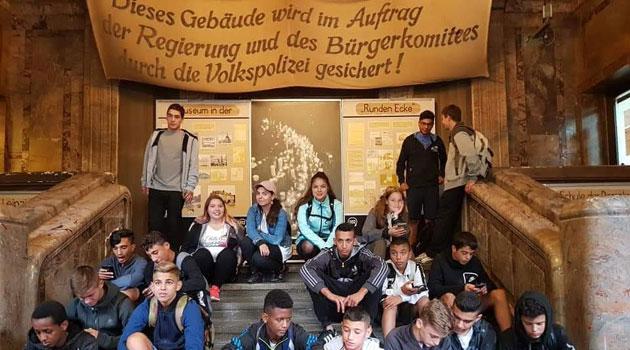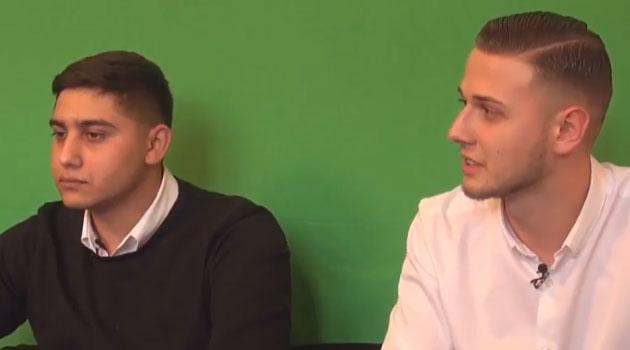Romani students from Czech Republic visit Germany, say they will not allow unfreedom to recur

Eight Romani high school and college students aged 15 to 24 from the Czech Republic attended an international youth meeting in Berlin and Leipzig, Germany from 10-18 July. Together with students from Germany and Israel they focused on the subjects of democracy and integration.
The students learned about European and German history, including the 1989 revolution in the former East Germany. The meeting began in Leipzig, a city known as the City of Peace and the location where the 1989 revolution happened.
It was exactly in Leipzig that the most demonstrations were held and where many citizens were engaged in the rise of democracy. The students visited the Stasi Bunker Museum, which reminds visitors of the crimes committed by the secret police in East Germany and their methods.
“We saw a camouflage workshop and different instruments for reading people’s mail and for listening in on telephone calls. I don’t even want to think about how horrible it must have been for the citizens at that time. The idea that somebody would visit your home looking for documents… Or somebody would
spy on us and force us to do the same to others and report them to the authorities on our own – it’s horrifying to me. It was interesting to see there how the socialist regime in those days built its own system to track people. We saw with our own eyes the evidence of how the state stole people’s fundamental right to privacy,” Denisa Maková, who attended the meeting on behalf of ROMEA in the Czech Republic, described her impressions to Romea.cz.
The students also met with a protagonist of the 1989 revolution in the former East Germany who familiarized them with what those days were like and shared her personal story and experiences with other youth who fought together for democracy during the 1980s. They were also given the opportunity to better comprehend the meaning of the Berlin Wall in more detail, the structure built in August 1961 that symbolized the Cold War, the division of the city of Berlin, of the country of Germany, and of Europe itself.
Many people were shot to death when they attempted to climb over the wall and make it to the other side. The wall was destroyed on 9 November 1989.
Different pieces of the wall have since been relocated to different places all over Germany. “All of you, thanks to your age and your energy, are exactly the future of the changes that will happen next, and not just in your own individual lives,” the eyewitness of these events before and after the 1989 revolution told the students.
A discussion then followed about subjects such as the problems in the Czech Republic, Germany and Israel and what young people can do to improve them. A total of 34 students then visited the Reichstag in Berlin, where German Chancellor Angela Merkel works and, together with other politicians, decides about affairs in Germany.
In addition to educational activities there were sports, including cheering on a football match between the Israeli visitors and children living in a German refugee camp. “We learned lots about the development of democracy. I liked that the workshops were combined with visiting historical sites. It was a brilliant opportunity to practice foreign languages and to get to know students from abroad,” said Michael Mitráš, a fourth-year student at the Gymnazium in Přerov who participates in ROMEA’s Roma Scholarship Program and is the head of the Youth Assembly for the Olomouc Region.
“During the meeting we got the impression that the communist regimes deprived people of a great deal. Not just material things, but also human lives. The idea of absolute control and superiority over one’s fellow human beings did not bring about any social justice. Together with the others who attended this meeting we say: ‘Let’s be for freedom! Stop Nazism and the communist regimes!’ ” the participants wrote as a joint statement.
The Romani students were able to attend the international meeting thanks to collaboration between ROMEA and the German Tüpfelhausen association, which is involved with educating children and youth. Its main aim is the development of democratic values and building friendly relations within Europe.
